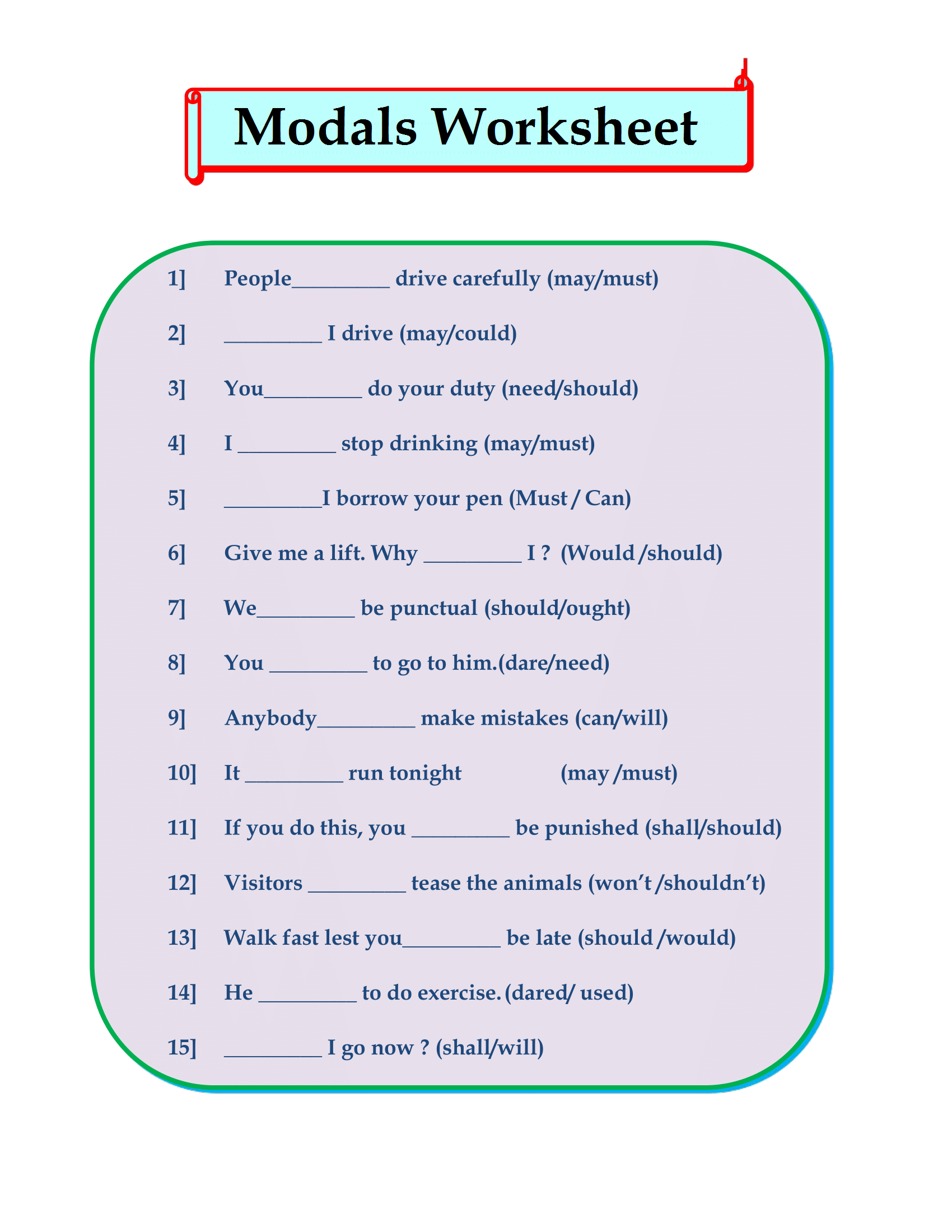In English grammar, modal verbs are a type of auxiliary verb that express necessity, possibility, ability, permission, or requests. They are used to indicate the speaker’s attitude towards the action or event being described. Understanding how to properly use modal verbs is essential for clear and effective communication.
One way to practice using modal verbs is through exercises that test your understanding of when and how to use them in sentences. This can help improve your overall proficiency in English and enhance your communication skills.
Modals Exercise with Answer
Exercise: Complete the following sentences with the appropriate modal verb.
- She __________ speak three languages fluently.
- We __________ buy a new car next month.
- You __________ to turn off the lights before leaving the room.
- He __________ pass the exam if he studies hard.
- They __________ attend the meeting tomorrow.
Answers:
- can
- will
- need
- should
- must
Modal verbs can help convey various shades of meaning in sentences. By practicing with exercises like these, you can become more comfortable using modal verbs in your writing and speaking.
Remember that modal verbs are used to express different degrees of certainty, ability, necessity, and obligation. Pay attention to the context of the sentence to choose the most appropriate modal verb.
Keep practicing with different exercises to strengthen your grasp of modal verbs and improve your overall English language skills. The more you practice, the more confident you will become in using modal verbs effectively in your communication.
By mastering the use of modal verbs, you can enhance your language proficiency and convey your intended meaning with clarity and precision. Practice regularly and challenge yourself with new exercises to continue improving your skills.
